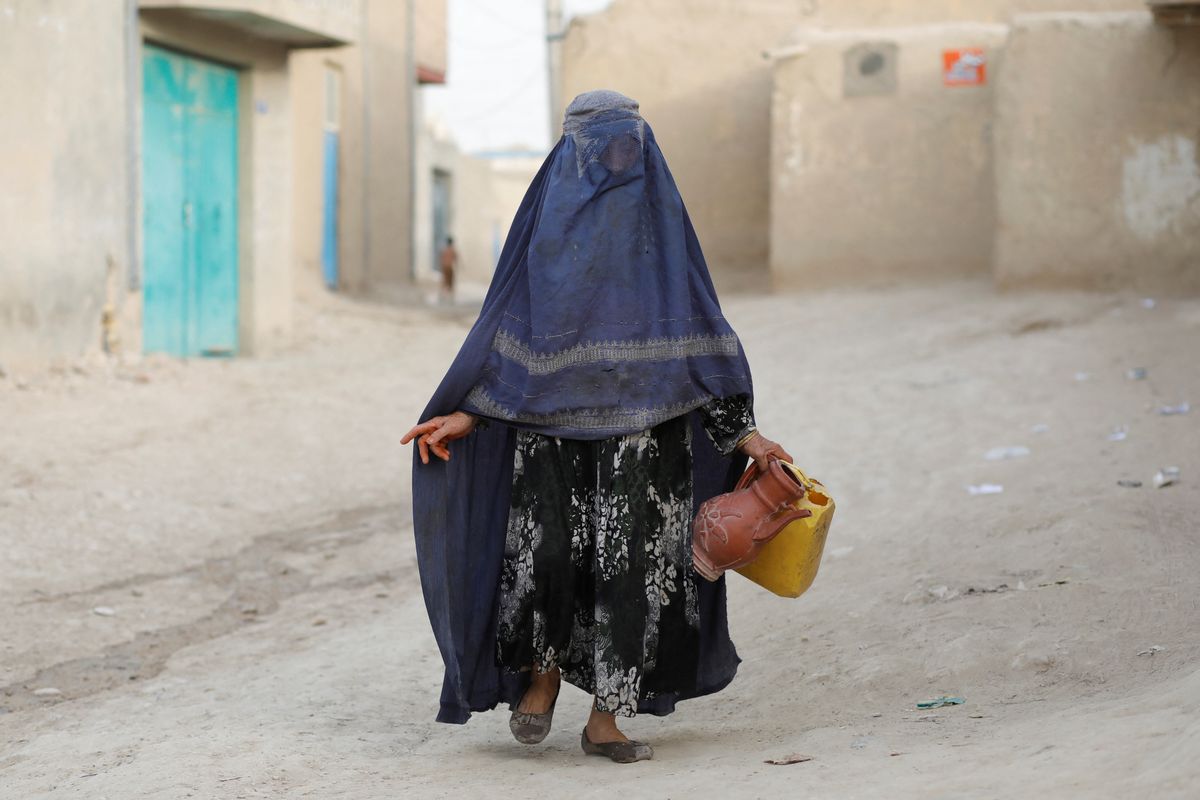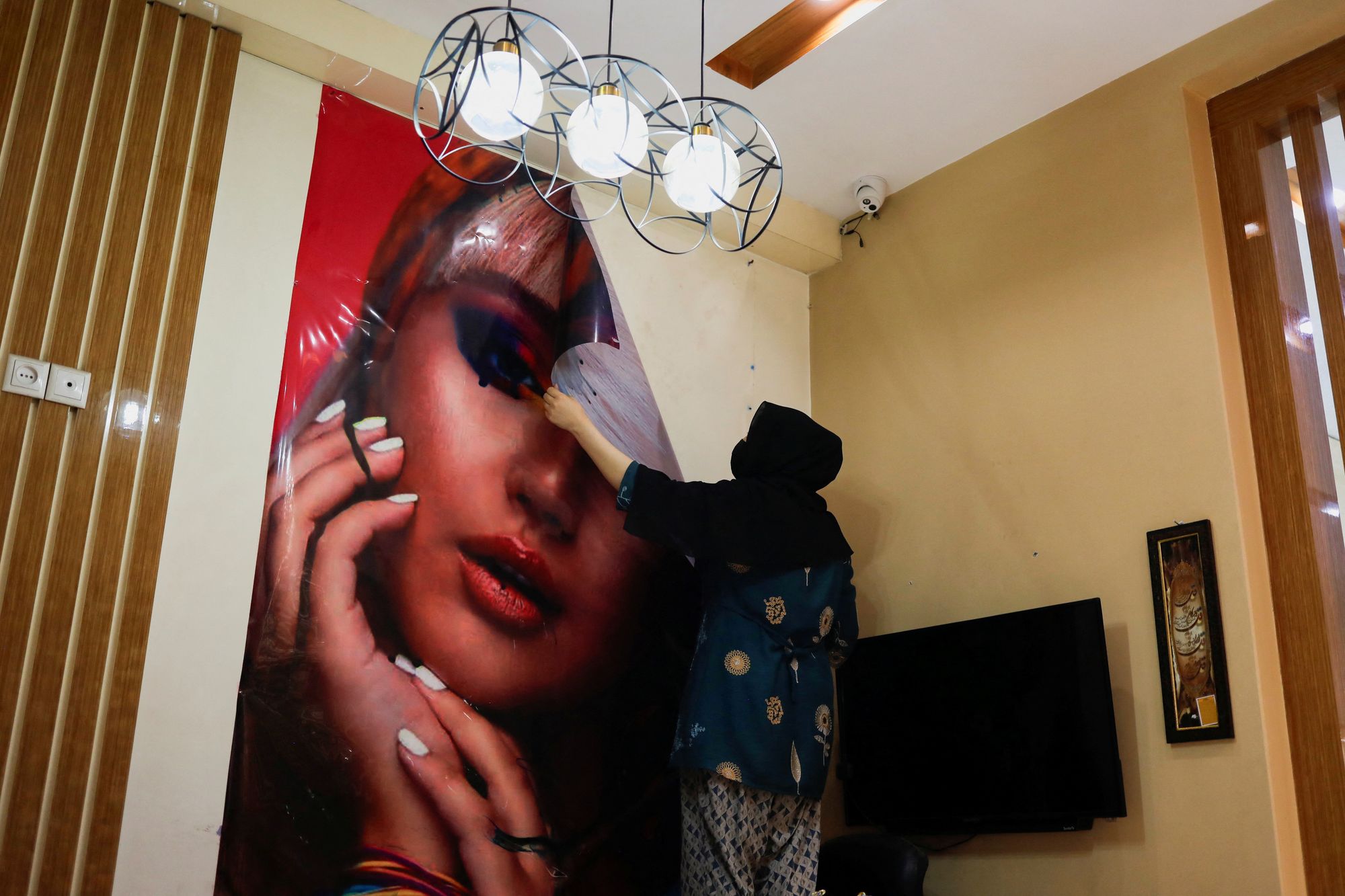Women’s rights in Afghanistan two years after the Taliban takeover
“The women in Afghanistan are being slowly erased from society, from life, from everything – their opinions, their voices, what they think, where they are.”

A few minutes every morning is all you need.
Stay up to date on the world's Headlines and Human Stories. It's fun, it's factual, it's fluff-free.
The Taliban first seized power in Afghanistan in the 90s after the Soviet Union pulled out of the area. Very conservative and religious, the group was able to build its power, controlling much of the country by the turn of the century. Human rights groups were concerned over how the Taliban treated women and other socially vulnerable people.
In 2001, the group was targeted by the US and NATO because it was harboring Osama bin Laden. For 20-ish years, the US military and NATO were able to counter the Taliban’s control, even if it still managed to control certain districts, and they worked to install a civilian government in the country.
But, the US and NATO pulled most troops out of Afghanistan during the summer of 2021, building on former US President Trump’s arrangement to end with war with the Taliban. In mid-August 2021, it became clear that the Taliban had become able to reclaim power and re-establish itself within the government there.
"We are going to allow women to study and work within our framework. Women are going to be very active in our society," the Taliban had made a point to announce quickly after seizing power on August 15, 2021. But, in the two years since then, Afghan women’s rights have become more and more restricted by new policies.
By that September, girls were banned from attending high schools, and female staff from those schools were also told to stay home. A Taliban spokesman explained, “We will open schools for girls across the country. We are working to improve the security situation." That hasn’t happened. In 2022, women were also banned from universities, public spaces, and even working with NGOs in the country (including the UN).

Slowly, new policies were put in place to make it so women couldn’t travel certain distances without a male relative. And dress codes were put in place, too, so that women had to cover their faces (except their eyes). The Taliban also closed all beauty salons last month, and photos coming from within the country show women’s faces and eyes being blacked out in public advertising. Under the Taliban’s rules, women can only get healthcare from other women. But, now that women aren’t allowed to go to school, it’s created a shortage of much-needed female doctors, midwives and nurses.
The situation is really affecting the mental health of young women as well, with the UN reporting last month that there have been widespread reports of depression and suicide, especially among teen girls who haven’t been able to pursue their education.
“There is no such thing as women’s freedom anymore,” said Mahbouba Seraj, an Afghan women’s rights activist and 2023 Nobel Peace Prize nominee. “The women in Afghanistan are being slowly erased from society, from life, from everything – their opinions, their voices, what they think, where they are.”




Comments ()